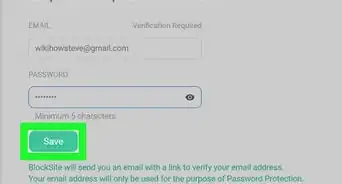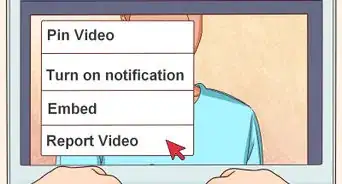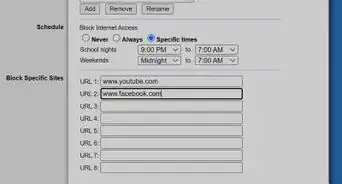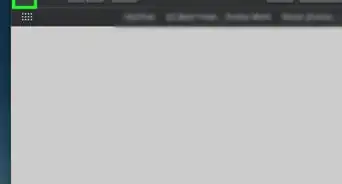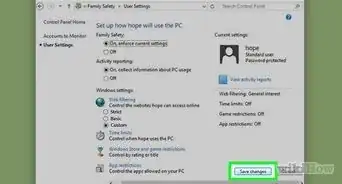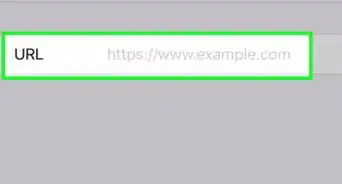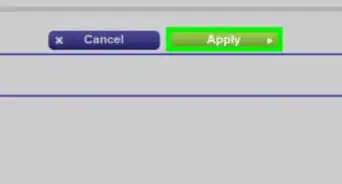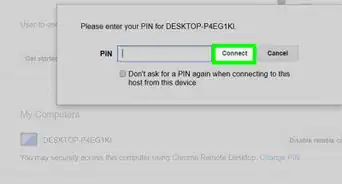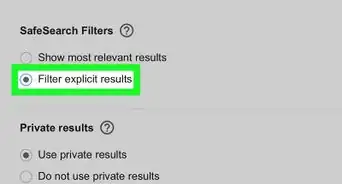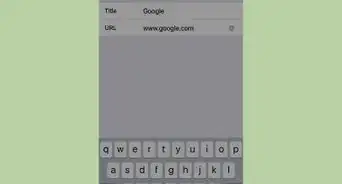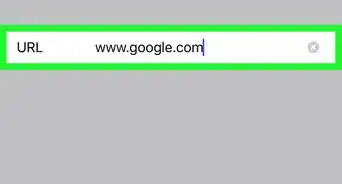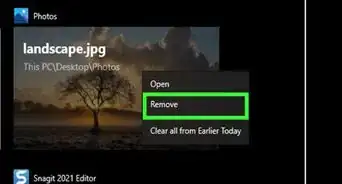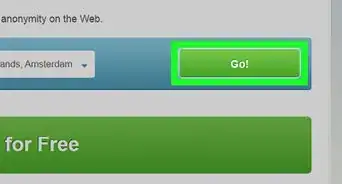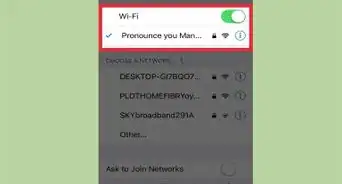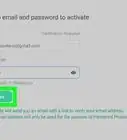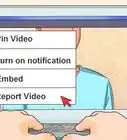X
wikiHow is a “wiki,” similar to Wikipedia, which means that many of our articles are co-written by multiple authors. To create this article, 18 people, some anonymous, worked to edit and improve it over time.
This article has been viewed 355,632 times.
Learn more...
You’re done with your homework, tired from exams and ready to zone out with your iPhone or iPad. You check your social networks but find that your favorite sites are all blocked. Then you try to watch a movie. Blocked again! Boredom is settling in and the situation feels desperate. But you’re in luck—there are many ways you can get around those filters from any iOS device.
Steps
Method 1
Method 1 of 5:
Using a Web Proxy
-
1Find a web proxy that works. You may have to do a bit of digging before finding a proxy that hasn’t already been blocked by your school. A web search for “web proxies” will lead to all sorts of options. If your school blocks sites that list proxies, use a network outside of your school to make a list of several web proxy sites to try. Proxy.org is a great site to find a current list of web proxies.
- Using a web proxy will help you get around web filters but won’t affect your other apps. If you’re trying to use an app that your school has blocked, you’ll have better luck with a VPN.
- Web proxies can be a bit slow, so be patient while things load.
-
2Open the web proxy on your device. In your browser, navigate to the web proxy and look for the box that asks for a URL or web address. It will be near the top of the screen. Enter the address of any site you’d like to visit.Advertisement
-
3Enjoy unfiltered access to the Internet. As long as you do your browsing through the web proxy website (not another tab or browser window), you’ll be able to access the sites blocked by your school.
Advertisement
Method 2
Method 2 of 5:
Using the Tor Network
-
1Install a Tor browser. If your school hasn’t blocked it, you can bypass their filters by using the Tor network. [1] iOS users can use the Tor network by installing Onion Browser from the app store. You can do this from any network.
-
2Find out if your school has blocked Tor. Start Onion Browser and try to visit any website. If you are able to pull up regular sites like Google or Apple, you’ll be able to use this method.
-
3Enjoy unfiltered access to the Internet. As long the Tor network isn’t blocked, you can access any website—even those sites blocked by your school.
Advertisement
Method 3
Method 3 of 5:
Using a Proxy Server Address
-
1Find a proxy server. You can use a search the internet for “Free Proxy Servers” to see what’s out there, but you’ll probably need to do this off-campus. HideMyAss has a great list of free proxies.
- Every proxy server has an IP address and port, so make sure to get both.
- Some schools block a lot of the ports that proxy servers use. If you’re having a tough time finding an IP proxy that works, that might be the reason.
-
2Open your wireless settings. Once you have a proxy server, open your Settings app and tap Wi-Fi. [2] Find the network you connect to and tap the blue arrow that points to the right. This will open your network settings.
-
3Set up the proxy. Tap "Manual" at the bottom of the screen. You’ll be asked to list the server and port of your proxy. There will also be the option to set up Authentication. You’ll only need to do this if your proxy address also had a username and password listed. If you have a username and password, turn on that option and enter it now.
-
4Browse the Internet. If you found a working proxy server, you’ll have unrestricted access to websites.
Advertisement
Method 4
Method 4 of 5:
Using Google Translate
-
1Open Google Translate in your web browser. Enter translate.google.com into your web browser’s address bar and press Enter.
-
2Enter a website address into the left text box. Try a website that your school has blocked. This method may not work with all websites, such as those which require you to sign in through a secure connection.
-
3Select any language other than the one the site was written in. For example, if you’re in the USA and want to browse Youtube, choose French or Spanish. The URL of the site will appear in the second text box as a clickable link.
-
4View the unfiltered website. Click the link in the second box or tap the "Translate" button. You should now be able to access the website, even if it’s been blocked by your school.
Advertisement
Method 5
Method 5 of 5:
Using a VPN
-
1Sign up for a VPN account. A Virtual Private Network will let you view blocked websites and use blocked apps. VPNs subscriptions are relatively inexpensive and easy to set up (some are free, but many of those are untrustworthy—try them at your own risk). ExpressVPN, IPVanish and VyprVPN are all safe VPNs to use.
-
2Set up iOS to send internet traffic through your VPN. In your Settings menu, select "General," then "VPN." Choose "Add VPN Configuration," then enter your VPN description, server address and account information (this all comes from your VPN provider and varies from user to user). Turn on the “Send All Traffic” switch.
-
3Start the VPN. Open the Settings screen and turn on the VPN switch.
-
4Browse the Internet. You now have access to the whole Internet.
Advertisement
Community Q&A
-
QuestionEvery time I try to connect a vpn to my school networks, the WiFi logo in the top left corner disappears and the vpn won't connect. Why is that?
 R2_d2000Top AnswererThe school network is probably detecting the vpn and is kicking you off. Your only option would be to try another vpn.
R2_d2000Top AnswererThe school network is probably detecting the vpn and is kicking you off. Your only option would be to try another vpn. -
QuestionMy VPN websites are blocked, what do I do?
 AndrewCommunity AnswerYou can always try sending an email or looking for alternative/mirror VPN websites.
AndrewCommunity AnswerYou can always try sending an email or looking for alternative/mirror VPN websites. -
QuestionWhat do I do if all the proxies and VPN used in school are blocked?
 Community AnswerYou can try SourceForge or GitHub to get anti-censorship software. Also, you can use TOR, I2P or Freegate. TOR is great for unblocking, but it's a bit slow.
Community AnswerYou can try SourceForge or GitHub to get anti-censorship software. Also, you can use TOR, I2P or Freegate. TOR is great for unblocking, but it's a bit slow.
Advertisement
Warnings
- Think twice before passing sensitive information over a web proxy. Only send credit card numbers and passwords over networks you trust.⧼thumbs_response⧽
- Make sure you understand school regulations and your region’s laws. Violating your school, organization or country’s internet policy can get you into trouble. Be very aware of the consequences before you try any of these methods.⧼thumbs_response⧽
- Using a proxy server could slow down your connection, which may affect the quality of streaming videos.⧼thumbs_response⧽
Advertisement
References
About This Article
Advertisement
-Step-1-Version-5.webp)
-Step-2-Version-5.webp)
-Step-3-Version-5.webp)
-Step-4-Version-5.webp)
-Step-5-Version-2.webp)
-Step-6-Version-2.webp)
-Step-7-Version-2.webp)
-Step-8-Version-2.webp)
-Step-9-Version-2.webp)
-Step-10-Version-2.webp)
-Step-11-Version-2.webp)
-Step-12-Version-2.webp)
-Step-13-Version-2.webp)
-Step-14-Version-2.webp)
-Step-15-Version-2.webp)
-Step-16-Version-2.webp)
-Step-17-Version-2.webp)
-Step-18-Version-2.webp)
